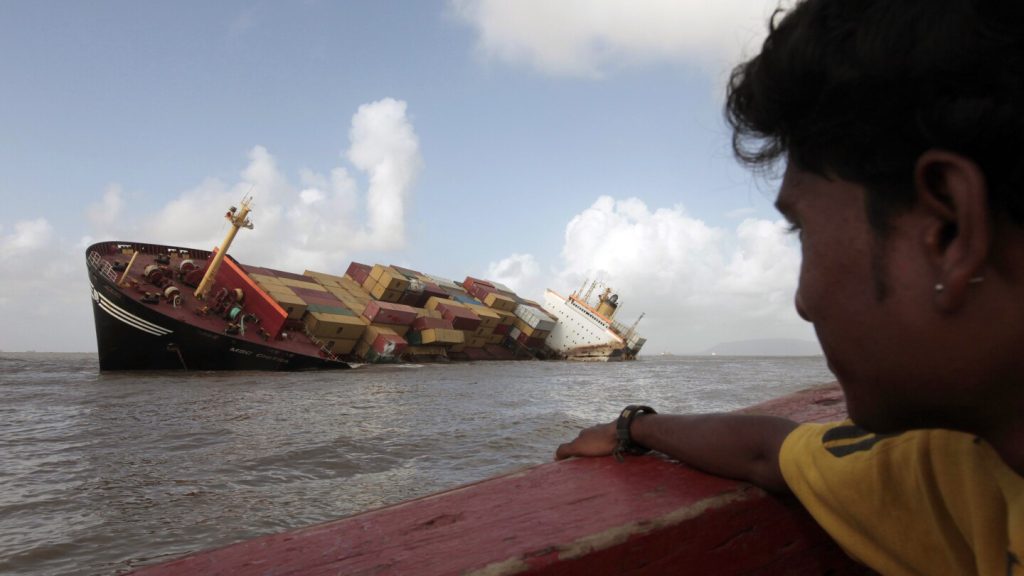Russ Lewis, a volunteer beach cleaner in Long Beach Peninsula, Washington, has been finding strange items washed up on the shore over the years, including commercial shipping containers lost in the open ocean. More than 20,000 shipping containers have fallen overboard in the last decade and a half, washing up on shorelines, damaging ecosystems, and adding to ocean trash vortexes. Cargo ships can lose anywhere from a single container to hundreds in rough seas, with estimates varying on the number of containers lost each year. The environmental impacts of container spills are concerning, with debris containing hazardous goods contributing to pollution and harming marine life.
One significant incident involved the cargo ship ONE Apus, which lost nearly 2,000 containers in the Pacific Ocean in November 2020. The debris from the ship spread along various Pacific coastlines, including Long Beach Peninsula and Midway Atoll, causing widespread environmental damage. Researchers and environmental advocates emphasize the need for better tracking and prevention measures to address the issue. The long-term consequences of leaving lost containers on the sea floor for hundreds of years are a growing concern, with marine biologists highlighting the negative effects on deep-sea ecosystems.
The impact of container spills on coastal communities was evident in Sri Lanka, where the X-Press Pearl disaster released billions of plastic nurdles and toxic chemicals into the ocean, leading to a devastating environmental crisis. The cleanup efforts were challenging, and the local fishing industry suffered significant losses. Similar incidents, such as the loss of 24 containers from the cargo ship President Eisenhower off the California coast, underscore the risks posed by container spills. Cleanup efforts are complicated, and the long-term effects on marine life and ecosystems remain a concern.
The growing size of cargo ships and the risks associated with handling large numbers of containers have raised concerns about the potential for more accidents and losses. Mislabeling, improper stowage, and inaccurate handling of containers can lead to accidents at sea, with catastrophic consequences. While efforts are being made to improve safety measures in the shipping industry, challenges remain in enforcing regulations and preventing container spills. The lack of comprehensive data on container losses highlights the need for better reporting and monitoring to address the issue effectively.
The international shipping industry faces challenges in addressing the problem of lost containers, with existing tracking efforts proving to be incomplete and fragmented. Self-reported surveys by industry groups may not capture the full extent of container losses, leading to underreporting and a lack of transparency. Efforts to increase accountability through global ocean treaties and amendments to regulations are underway, but enforcement remains a challenge. The long-term impact of lost shipping containers on marine ecosystems and coastal communities underscores the urgent need for better oversight and prevention measures to mitigate environmental harm.


